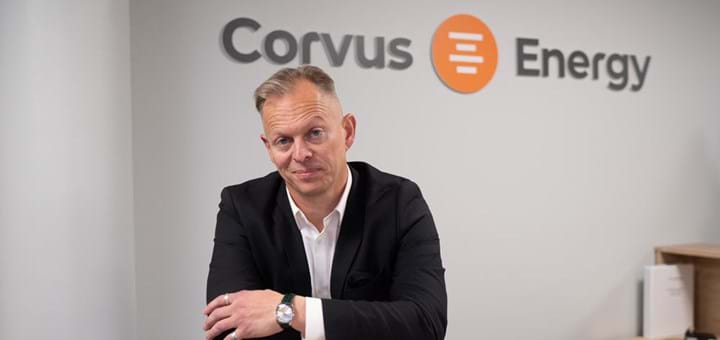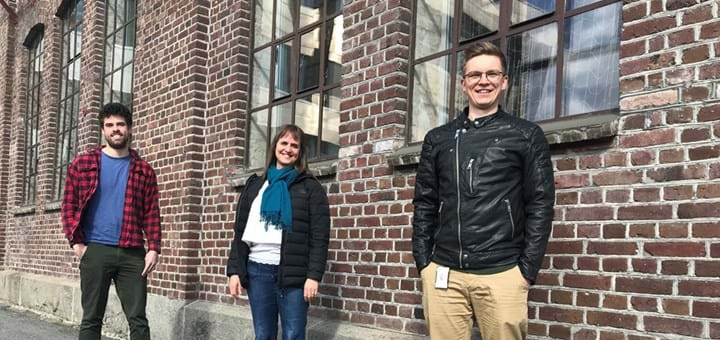HVL and Corvus Energy Join Forces within Hydrogen

A letter of intent between Western Norway University of Applied Sciences and Corvus Energi AS will ensure co-located test facilities and exchange of expertise within hydrogen technology.
Corvus Energy is investing heavily in the production of hydrogen fuel cells and plans to build a new factory in the Bergen area.
It is in connection with this that plans for the co-location of a hydrogen laboratory between Western Norway University of Applied Sciences (HVL) and Corvus Energi are formalised in a new agreement signed by Rector Gunnar Yttri and Executive Vice President Geir Bjørkeli during Arendal Week (Arendalsuka).
For HVL, this means access to important facilities that can be used in education and research.
Will Strengthen the Development of Important Expertise
Dean of the Faculty of Engineering and Science Jens Kristian Fosse is very happy with the opportunities the agreement provides for students and the academic environment.
– We believe that a closer collaboration with Corvus can be useful both for us and the company. The students will get close to an exciting activity in development, and this type of collaboration helps to strengthen the relevance of working life in our educations. It can also help strengthen our collective capacity to deliver knowledge in an area that is important to the entire industry, he comments.
Geir Bjørkeli, Executive Vice President of Corvus Energi, is also very pleased to have the agreement in place:
– For our part, it is a great advantage to be able to benefit from the professional knowledge that the University College of Western Norway has. We need to work together to build the future competence in hydrogen that Western Norway as a region needs, he comments.
Sustainability and the Green Shift
In addition to sharing test facilities, the agreement involves collaboration related to student assignments, research and innovation projects, and educational collaboration.
Jens Kristian Fosse explains that virtually all engineering students at University College of Western Norway solve tasks for regional business in their bachelor projects, and that much of the knowledge developed through the research activity is of great relevance. Contributing to the green shift through education and research is also central to HVL's strategy.
– Developing subjects and topics in close partnership with the business community we educate for, is important for HVL. This is in line with our ambition to be "close" and contribute to regional development, he comments.
Hydrogen is Gaining Momentum
Hydrogen is a key energy carrier when it comes to the world moving from fossil fuels to renewable energy solutions. In June, the government presented its roadmap for hydrogen, and in Norway, the investment in hydrogen is gaining momentum.
Assistant head of department Velaug Myrseth Oltedal teaches and researches hydrogen technology at the Department of Mechanical and Marine Sciences at University College of Western Norway. She explains that the university college is working to build up the academic environment within hydrogen and thinks it is very important that an educational and research institution such as HVL is "on the ball":
- Hydrogen is a field that is developing very fast. That is why it is important that we have good contact with the business community to deliver relevant and up-to-date teaching and competence, says Oltedal.
University College of Western Norway was among the first to establish a pure hydrogen subject in engineering education in 2019. In the past year, University College of Western Norway has also developed continuing and further education courses in hydrogen technology. Oltedal notes that there is great interest among engineering students to write assignments on the topic.
- In fact, we have so many who want to write about hydrogen that we have to say no because we do not have supervisors for all of them, she adds.
She explains that so far they have relatively little access to lab facilities for hydrogen in the educational institutions. That is why she is extra happy with the agreement with Corvus, which will provide access to more advanced equipment that can be used for master's and research work.
- It is now all the R&D institutions must step in if one is to be involved in the development. We must work to put Western Norway on the map and strengthen our position within hydrogen, she concludes.
Further Reading
Related Events
GCE Ocean Technology Events
Other events




